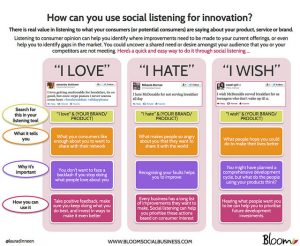53 6.6 Informal Sources

Getting started on a new subject and grounding the information in “reality” are just two challenges you’ll face early in the information strategy. The best route to meet both of these challenges can be consulting people informally and observing the world around you.
When describing how informal sources might be helpful, we are talking about what people know, feel, and believe from their life experiences. A person you might consult as an informal source might also be an institutional, scholarly, or journalistic source in another context – one in which the information you are trying to get from them is related to their work.

Monitoring online forums, chat rooms and social networking sites has become a routine part of a communicator’s daily work routine. These sites allow individuals to share what is sometimes a disconcerting amount of personal information about their lives, interests, activities, acquaintances and future plans. Social networking sites as sources of information from informal contributors provide the communicator with a rich vein of material that was once non-existent or nearly impossible to tap.
The ability to find informal sources and “listen in” on what they are talking about has been greatly enhanced with the rise of social networks and microblogging services like Twitter. A challenge, though, is identifying those messages truly contributed by unaffiliated people and messages that look like they are from “informal” sources but which are actually marketing-sponsored messages.
Even at their best, informal sources provide just a portion of the information that is needed for a message. Informal sources may be incomplete, outdated, self-serving or contain errors of fact or interpretation. They are most likely to provide you with a “slice of life” perspective rather than an informed, credible perspective that other types of sources might provide.

